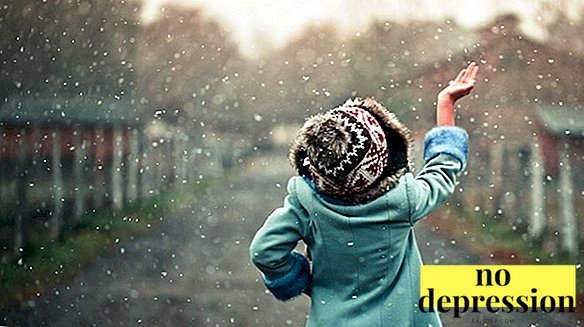Socialization is one of the main personality formation methods.
Do not underestimate the impact of society on a person.
The thousand-year history of civilization gave us examples of behaviorthat can be considered correct and rational in a given situation.
The perception of these examples occurs precisely through the socialization of the individual, that is, its inclusion in the system of social relations.
What happens with socialization?

Socialization - This is a multifaceted phenomenon.
Its purpose is to ensure that a person learns the basic knowledge, rules of behavior and moral values of the environment in which he is to live.
It is not a self-evident process. Socialization - product of the long development of society as a civilizational phenomenon.
The integration of a person into a system of social relations consists of a complex of complex psychological procedures for influencing an individual that are aimed at achieving concrete results (instilling an understanding of social processes, transferring a system of knowledge, norms and values, distribution of social roles and statuses).
The order of implementation of these procedures is established by the social institution within which it takes place.
Social institutions in sociology, psychology, philosophy, and related sciences mean ways to unite people into groups to achieve certain goals. That is, the institutions of socialization are groups of people who influence a person in order to adapt it to society.
Traditional institutions (or agents) of socialization are the family and cultural and educational structures.
The rapid development of the system of social relations under the influence of the growing importance of information and the scientific and technical process led to the emergence of new agents of socialization.

The Internet and the media now have no less, if not more influence on the formation of personality than traditional institutions.
Depending on the peculiarities of the thinking of parents and their social orientations on the formation as the identity of their child can also be affected:
- religion:
- art;
- the science;
- Mass culture.
The main social institutions of the individual and their features
Family
In the family is a child first encounters relationships between people. Here he learns the first models of social interaction, gets acquainted with the roles in the family, sexual stereotypes of behavior.
The family is an institution of so-called primary socialization. Thanks to her, the individual joins social relations in their broadest sense.
Integration of the personality into specific types of relationships constitutes the next stage of its socialization; it has secondary characterbased on skills acquired during primary socialization.

The initial status of the child also depends on the social status of the parents.
This means that the capabilities of the child are initially limited to those of the parents. Depends on family:
- what other socialization agents the child will interact with;
- how exactly they will affect his personality;
- The essence of the child's conclusions that will be made in the process of socialization.
The level of education of parents, moral guidelines and cultural identity reflect on the characters of all their children. The nature of the child, in turn, determines the peculiarities of the process of its further socialization.
The attitude of parents to the child forms his understanding of his place in life. It is through the eyes of parents that he looks at his own "I" in the first years of life.
The essence of his "I" depends on which parenting style was chosen by the parents: authoritarian (imposing one’s will and ignoring the child’s desires), democratic (inculcating certain behavioral stereotypes by reaching a coordinated decision) or liberal (intervening in the development of the personality of children only in extreme cases, while parents declare their position, and therefore - about their attitude to the child).
Education and culture

In the modern world Education has a number of features:
- The policy of state bodies of most countries is aimed at ensuring access to education for the widest possible population. This causes its universalism, which, on the one hand, contributes to the formation of integral social groups, and on the other hand, levels a number of individual personality characteristics.
- The process of obtaining education is extremely formalized. It focuses on the achievement of results in clearly specified ways.
- Education is carried out by people for whom socialization is kind of professional activity. This circumstance causes the order of its implementation different from other agents of socialization.
The importance of getting an education is that the knowledge transmitted in schools and higher educational institutions objectively reflects reality (as opposed to the subjective view of the parents), which better contributes to the child’s entry into the existing system of social relations.
Education also introduces the individual to the culture of his environment. it it creates a sense of belonging to a socio-cultural group, awareness of oneself as part of a certain people, responsibility for the normal functioning of social structures.
The education system forms the civil position of the individual, determines its national and cultural identity.
The science

Science forms the individual objective view of the world.
In contact with science, a person revises his accumulated social habits, determines the level of their rationality.
With its help, he determines the place of events that occurred or are occurring with him, in the overall picture of the universe.
Identifying the causal relationships of the phenomena contributes to the fact that the individual gets the opportunity predict the consequences of your behavior in one area or another. This qualitatively improves its activity, enhances its results.
Unlike education, science is purely descriptive and as much as possible from estimated categories.
There are fewer loopholes for manipulation due to the fact that science focuses on the display of characteristic signs of reality.
Education is more focused on the formation of the individual. appropriate attitude to the environment, its correct, in terms of compilers of educational programs, evaluation.

The requirements that science puts forward for those who perceive it (recipients), provide for strict adherence to the laws of logic.
This means that some science facts have for recipients coercive force.
Having accepted certain assumptions, the individual is forced to accept their consequences, regardless of his desire and how he evaluates these effects.
The specificity of science as an institution of socialization contributes reconciliation of personality with the outside world, reducing its level of aggression and the desire to adjust the habitat for themselves by any means.
mass media
Media is influential regulator of social life. They are the main and largest link between the individual and the outside world. The media provide the individual with information about those aspects of reality that interest him.
In this context, the media can also perform an identifying role, combining a certain number of people according to their interests (subscribers of newspapers, magazines, account holders on media pages on the Internet).
The uniqueness of the media as an institution of socialization is that they have the amazing ability to teach grades under the guise of descriptions.

Mass media do not simply describe the events that take place, they introduce them into a specific context, thereby evoking the corresponding associations in the information consumer.
To preserve the loyalty of the audience, the media should consistently carry out in their materials the motives that contributed to the decision of the individual to become consumer informationprovided by this media.
It is in the media that there is a selection of information that will become the property of the general public. This takes into account the nature of such information, the way it can affect its customers.
Media audience perceives those basic settings that journalists skillfully place in the material in such a way that they influence recipients indirectly, imperceptibly, gradually.
This ultimately contributes to the formation of a person's desired views for media leaders on the world.
the Internet
The impact of the Internet on the process of socialization of the individual in the conditions of the twenty-first century very noticeable. This is mainly due to the transfer of the tools of other social agents to the Network. The Internet affects all other agents of socialization.

Parents are looking for pedagogical information on the Internet in order to carry out child education that is correct from their point of view; educational and cultural institutions along with science and the media are also represented on the Internet.
In addition, the Internet attracts people of adolescence the impossibility of its full regulation by the authorities. Access to the sweet forbidden fruit here does not meet any obstacles.
This creates a sense of individuality in the individual. Person conscious of being more informedthan the rest of the public.
This circumstance contributes to his positive self-identification, even if the real influence of the information he perceives is destructive.
On the Internet, people are the easiest to unite in communities. Search for like-minded people does not require such an amount of effortas in real life. It also determines the popularity of the Internet as an agent of socialization.
Like the media, the Internet does not provide for the individual. no sanctions.
This makes the Network a more acceptable institution of socialization in the eyes of an emerging personality as compared to family, education or science, where the inconsistency of human behavior with accepted standards may be followed negative consequences.

The process of personality formation is influenced by a large number of factors.
With the development of society, they are becoming more and more.
The role of some institutions in introducing the individual to the system of social relations decreases with time, but the value of the primary agents of socialization remains unchanged.
At the same time, the peculiarities of the ratio of primary and secondary agents cannot be considered as a process of unilateral influence.
Secondary agents contribute to the final formation of the personality, which, with the entry into family relationships, will become the primary socialization agent for the new generation.
Social institutions and their functions - briefly:



